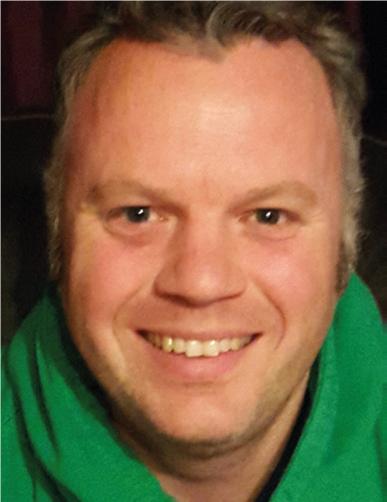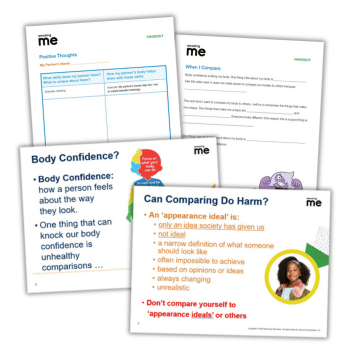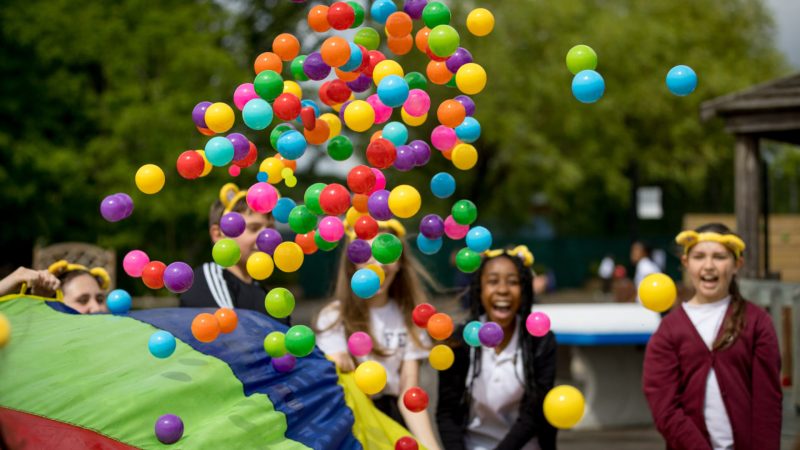How to reflect positively on your teaching

Stuck on the hamster wheel? Perspective and acceptance are the keys to improving your practice and your wellbeing…

- by Mark Creasy

In my new book Independent Thinking on Primary Teaching, I ask the reader to consider this question:
Do I start each day with an optimistic outlook and end it the same way, able to reflect positively on my successes and healthily on what didn’t go so well?
This may seem easier said than done. We are all aware, or should be, of the importance of personal health and (mental) wellbeing; to look after ourselves so we can look after others – particularly the children in our care.
All too often the Twitterati is awash with tales of colleagues on the perennial hamster wheel of work and expectation, making the concept of answering ‘yes’ to my question seem a forlorn hope.
For me, the ability to be able to reflect positively and healthily on a day’s events is vital. Why is it that we agonise over questions like ‘If only…’, or ‘Why didn’t I…’, and ‘I should have…’?
Why do those, usually infrequent, negatives keep us awake and cause us restless nights? Why don’t we dream about the innumerable positive interactions throughout the day instead? Basically, it’s human nature!
Our brains are hard wired to focus on negative things, a primeval instinct that kept our ancestors alive. This concept is explained in detail in The Power of Bad: How the Negativity Effect Rules Us and How We Can Rule It, by Roy Baumeister and John Tierney.
I have used this understanding to distil five simple and effective ways that I use to reflect on each day in a positive, healthy way. Consider them, put them in your own personal toolbox and use them to impact your working experiences – hopefully you won’t reach each the end of the next half-term feeling like a worn-out rag!
Time to reflect
Whether something has gone well, or not as you’d planned, making time to reflect is important. I have found that far too often the negative is what comes to us immediately, and so our natural fixation with it makes it predominant.
However you do it – on the drive home, walking the dog, cooking dinner, sitting alone – make time to think over your day.
True, this may mean that you have to force yourself to think about the positives, but give it a go. Reflecting in a rush will only lead to focusing on a few snippets, and these will undoubtedly mean that the negative is the focus.
With time, the positives will emanate – make sure you make a note of them, mentally or in a book, for future reference. This does not mean ignoring the negatives, but keeps them in perspective.
Confide in a friend
If you are going to be reflecting, I have found that it is best done with someone else. Someone you trust. Someone who will listen. Someone who will offer advice if you want it. I learned this during my NQT, and nothing has changed throughout the following 25 years.
Having someone you can talk through the day with is invaluable, especially when it is done with no judgements attached. This allows you to unpick what happened, look at things from different angles, and to hear your thoughts, seeing what or how you could or should have done things differently.
With the right person this will be a coaching session, where they say very little, but give you time and space to work things out for yourself and help you to be better prepared for the next day or lesson.
It’s sad that, due to many competing pressures, schools don’t seem to operate a buddy system for new staff anymore (new to the school not just ECT). I have always found this vital to my teaching and, if you’re a leader, I’d recommend it heartily.
Don’t just presume that your current staffing structures allow for this – consider how you can specifically engender it.
Be more Janus
There can’t be a primary teacher that hasn’t been in an assembly featuring this Roman God, can there? Put simply, look backwards and forwards. In this way you can take each eventuality and ensure that it is built on and/ or addressed in the future.
For example, if you had a negative interaction – perhaps a lesson went awry, or a child became emotional – then know that the following day can be used to overcome, intervene, change and develop.
This is what makes points one and two so vital. With time and, hopefully, someone to share and discuss with, you will be able to look back at what has happened, but also be able to look forwards.
A good way to support yourself in this endeavour is to have a space in your planning for reflection. Variously I have used a ‘Next lesson I need to…’ section in my plans, made notes in my diary or planner, and had a specific online ‘to-do’ list to help me.
Devise your own way, but committing to it and not seeing one day as an end in itself will help.
Be more Jack Reacher!
I don’t mean be 6’5” and 250lbs. But his mantra, ‘Hope for the best, prepare for the worst’, is worth considering. It really does help to accept, before anything happens, that something could go wrong.
This doesn’t mean you need to be pessimistic and dismiss things with ‘I knew that would happen’ – if you knew it, why didn’t you plan to avoid it? No, I mean don’t expect to be perfect.
Too often people think they must present an idealised view to the world, especially thanks to social media, but this is where your professional friend is so invaluable.
Most of us in education, for the sake of the children, resonate with the swan analogy (appearing calm on the surface, furiously pedalling under water), but we need to prepare for the unforeseen.
It’s not what happens, but how you deal with it that counts – which I have found is a lot easier when you aim for perfection yet accept it may not happen. As the saying goes: ‘Aim for the moon. If you miss, you may hit a star’.
Today is a new day
Yes, this may be a cliché, but it is true and something we will often say to the children, so why not to ourselves? This may be hard for people who have challenging circumstances, but think about what you could do to start your day afresh.
It could be as simple as changing your morning routine. Drive a different route to work. Listen to your favourite songs – sort yourself out with a playlist!
I have found that if you start the day in a different way, it affects your mood and mindset. See it as a new opportunity, otherwise you can become like the stereotypical sports player who doesn’t change their underwear because they’re ‘lucky’ – though, probably not for the rest of the changing room!
Using these approaches, I have been able to not let negativity override the successes, and I still enjoy and want to teach 25 years on.
Mark Creasy is an Independent Thinking Associate and experienced primary school teacher. His new book Independent Thinking on Primary Teaching (£10.99, Independent Thinking Press) is out now.







